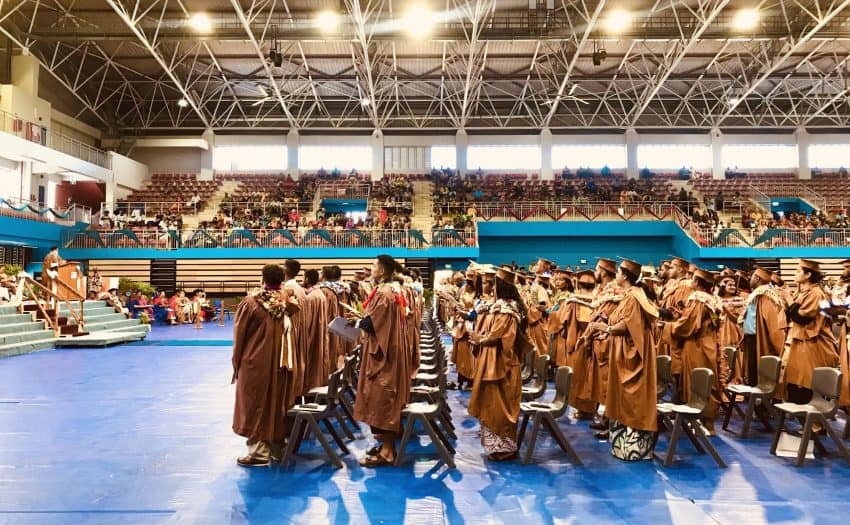Regional students share their experiences
Over 1,786 tertiary students received their accreditation at the University of the South Pacific’s (USP) first graduation ceremony for 2023, with 61% of those graduating being women.
Vice-Chancellor Professor Pal Ahluwalia told the graduates that USP has, and continues to be,a bedrock for regionalism, a resource owned by the region, for the region and a precious institution that needs to be protected in line with the vision of our forbearers.
“In everything you do – exemplify excellence, embrace innovation, uphold the highest ethical standards and operate with integrity; be respectful to all, and celebrate diversity and above all, never settle for second best because you have the potential to do anything that you set out to,” Professor Ahluwalia reminded the graduates.
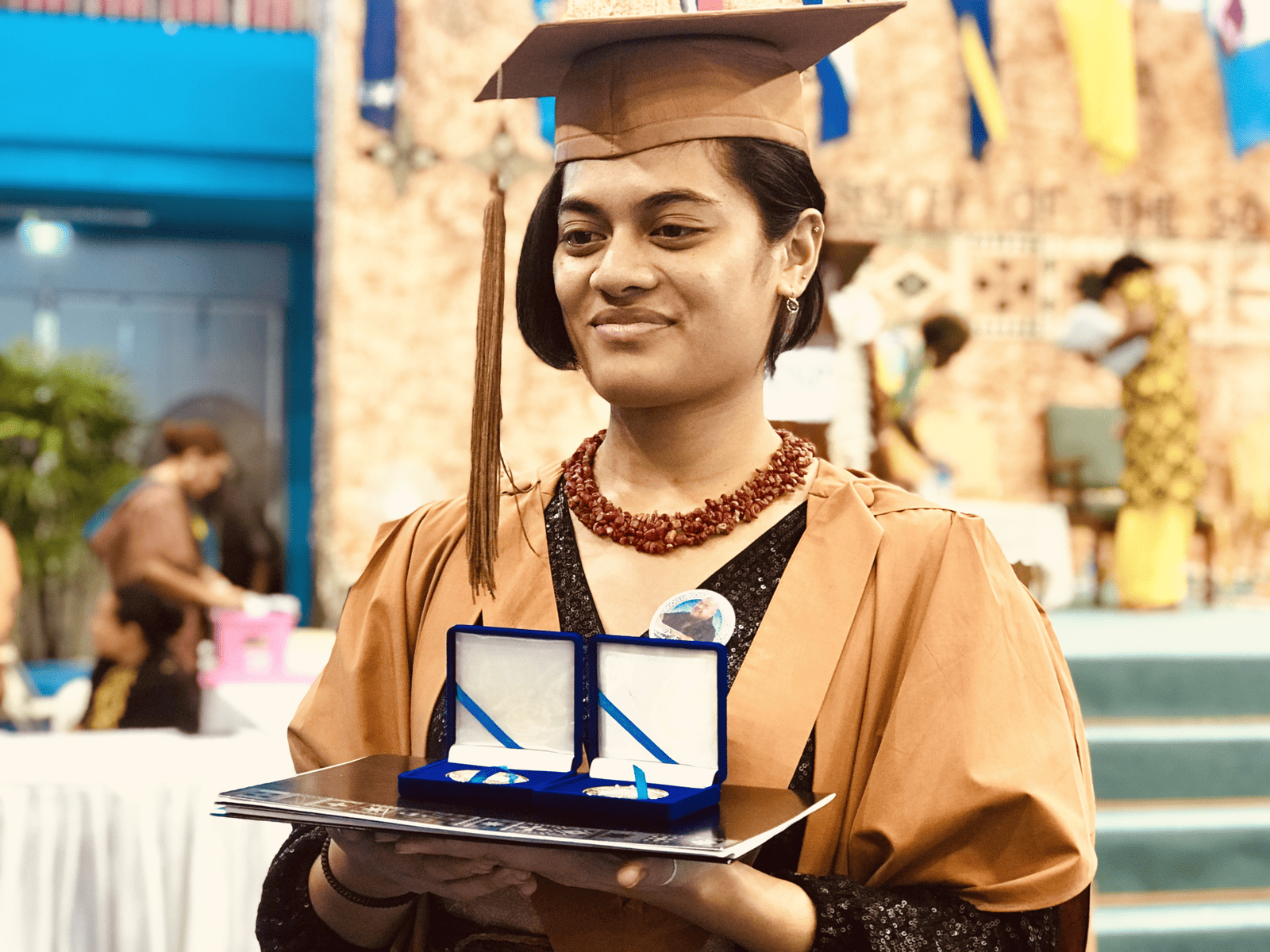
Among the graduates was Rachel Vakasiuola from Tonga, who achieved a Bachelor of Science. She was also awarded two gold medals for the most outstanding graduate in Biology and Chemistry.
“What I’ve learnt at USP is immense to be explained.” Vakasiuola says she plans to pursue further studies in Forensic Science at the University of Auckland. “Hopefully, what I learn there will be of great help to the police task force back home and for my country in general,” she said.
Hailing from Marshall Islands, Bianca Manoni attained a Bachelors of Marine Management. Her father who is the deputy secretary of the Pacific Islands Forum has been her inspiration, she said.
“I saw that the ocean was a part of our life… So I need to learn what we need in order to survive with everything going on, climate change and its impact on tuna resources. That’s why [marine management] is really important to me. We are Oceania. We are people of the ocean.”
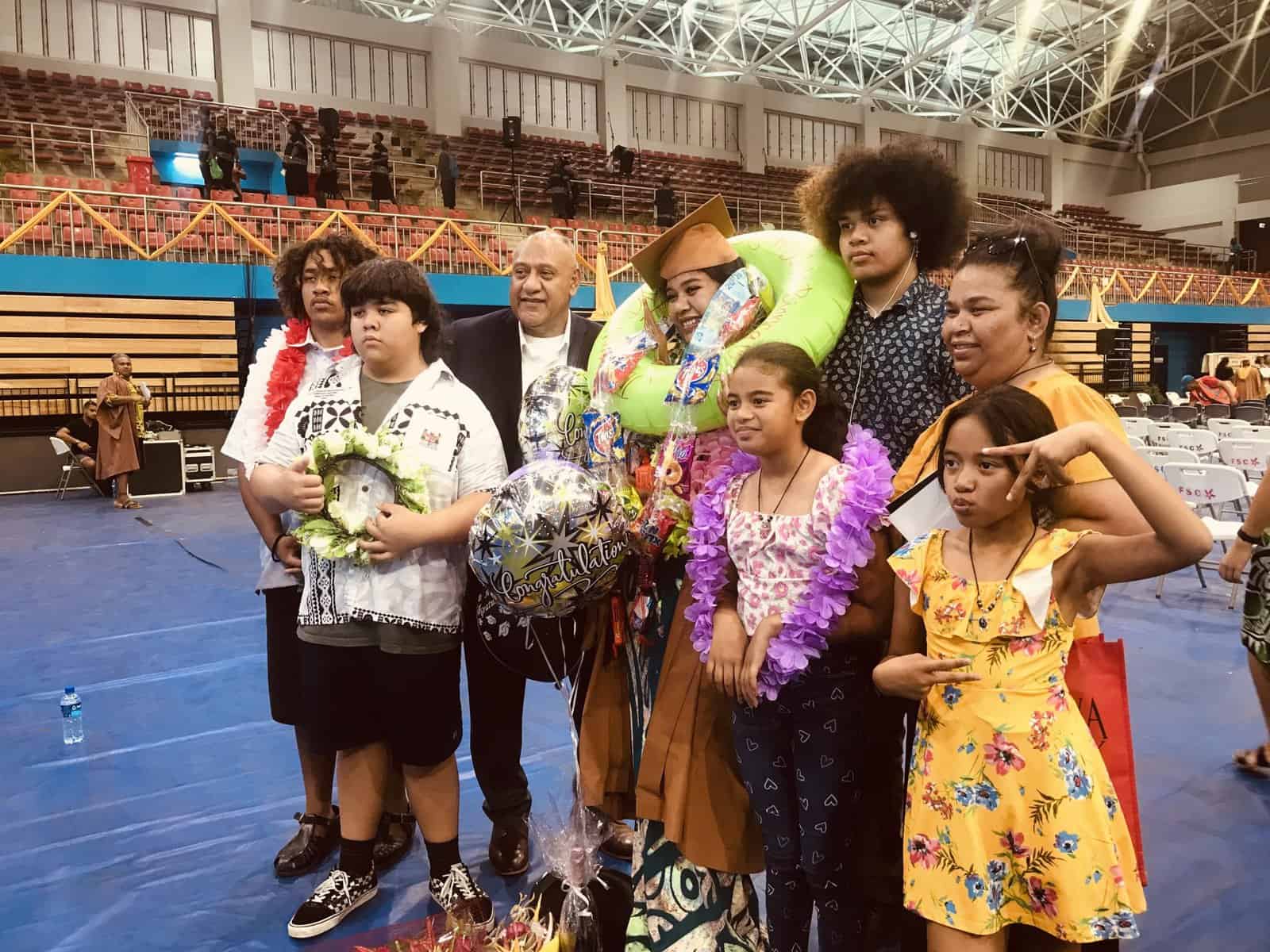
Kiribati’s Aritika Burenara says her island country needs more awareness on how to manage the environment because “coastal erosion is becoming a common sight.” Burenara graduated with a Bachelor of Environmental Management.
“Through my program, we did a lot of things like field trips to villages around Fiji last year. I saw that erosion is a big problem. The soil is bad, and the problem is similar to what is happening back home in Kiribati,” she said.
Despite reports of Kiribati’s prolonged drought, Burenara asserts her homeland is resilient. “Most people say Kiribati is facing poverty, I don’t think that’s true. My people have many resources that they can rely on. They are standing on their own feet and surviving,” she said.
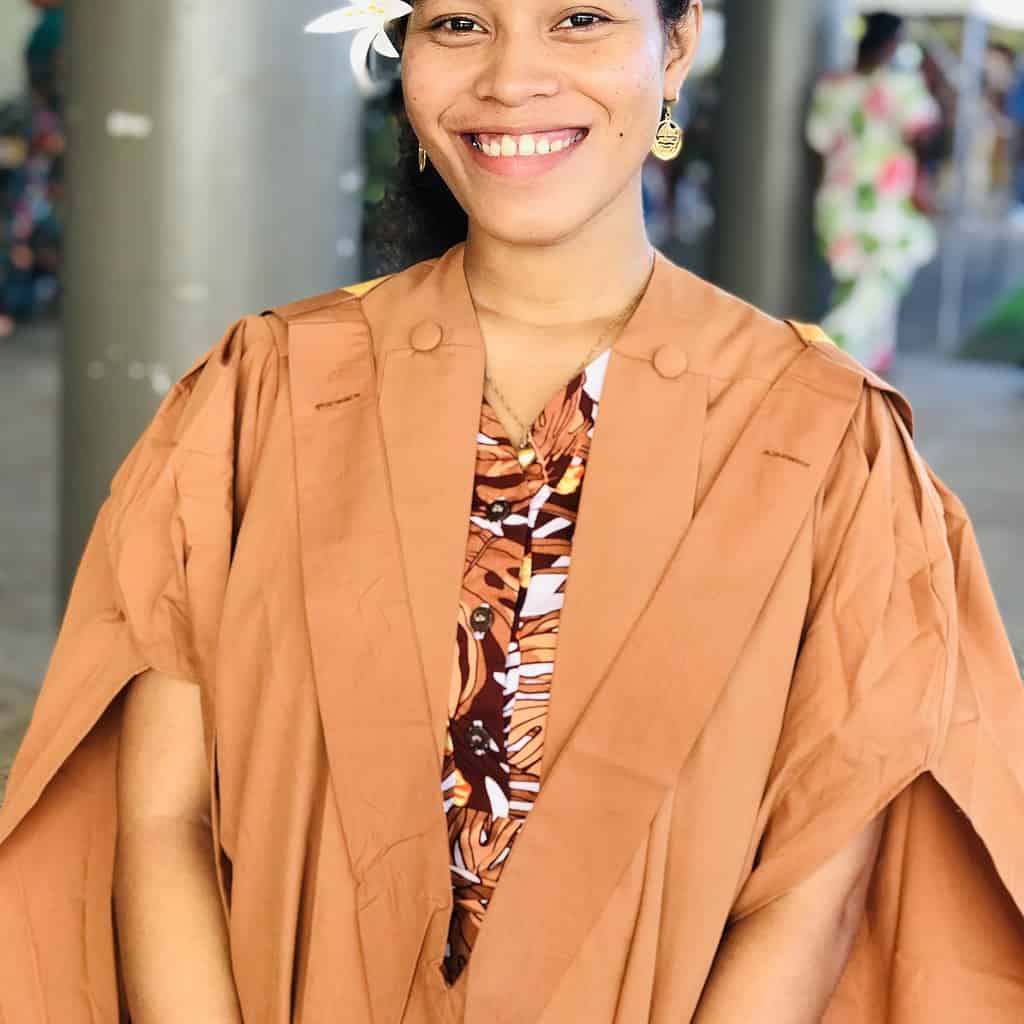
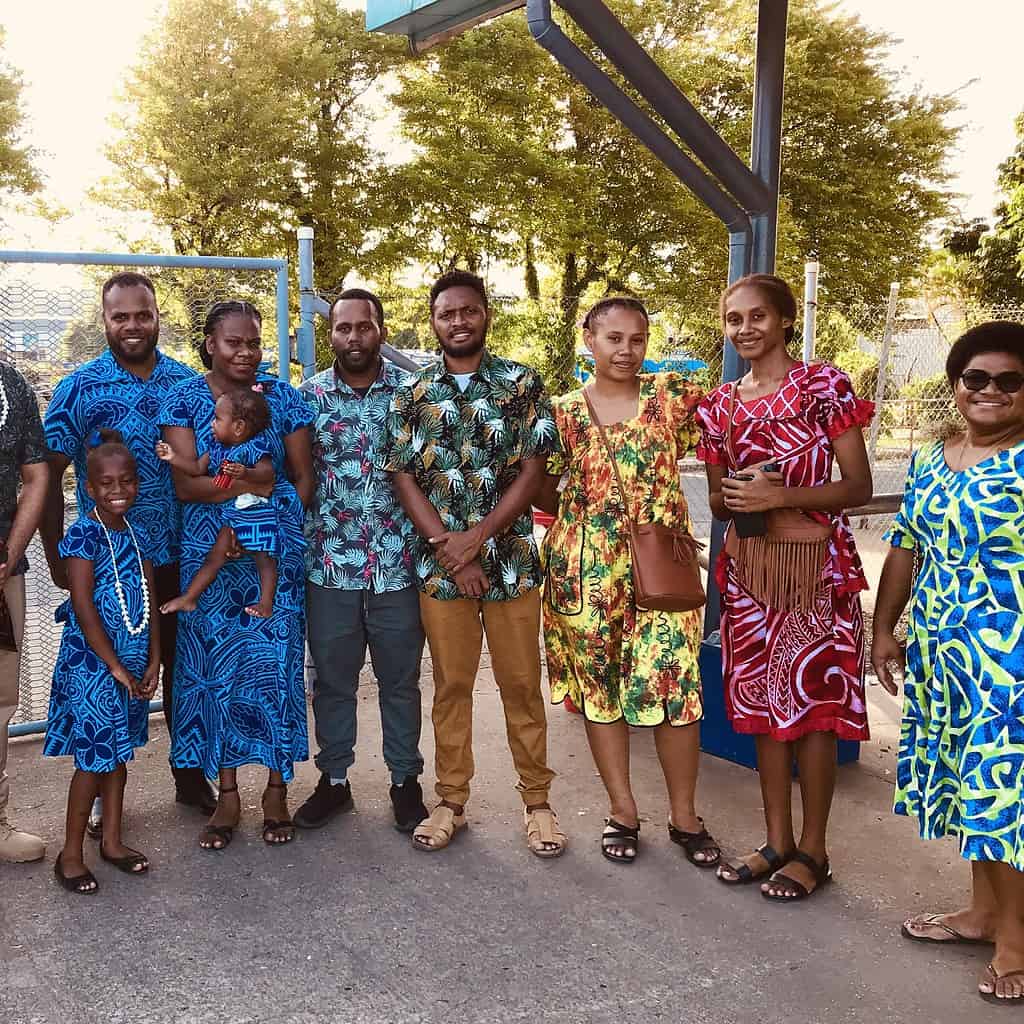
Ni-Vanuatu graduate Philip Wilfred says he pursued a Master of Education so that he can improve his local community in Torba Province.
The former physics teacher at Matevulu College highlighted that a lot more can be done to enhance students’ performance. “Not many students are doing well [in Torba] so I’ll just try to be an advocate to them that there is always a good way to make a good life out of education, if you decide to pursue it,” he said.
On the recent UN backing of the Vanuatu-led climate resolution, Wilfred believes “it’s very important to us because we are in the impacts of climate change. We are not waiting for it. We are already inside climate change. We are experiencing all the effects such as sea level rise, changes in weather patterns. And it has affected us. I think [the adoption] is a big win for us.”
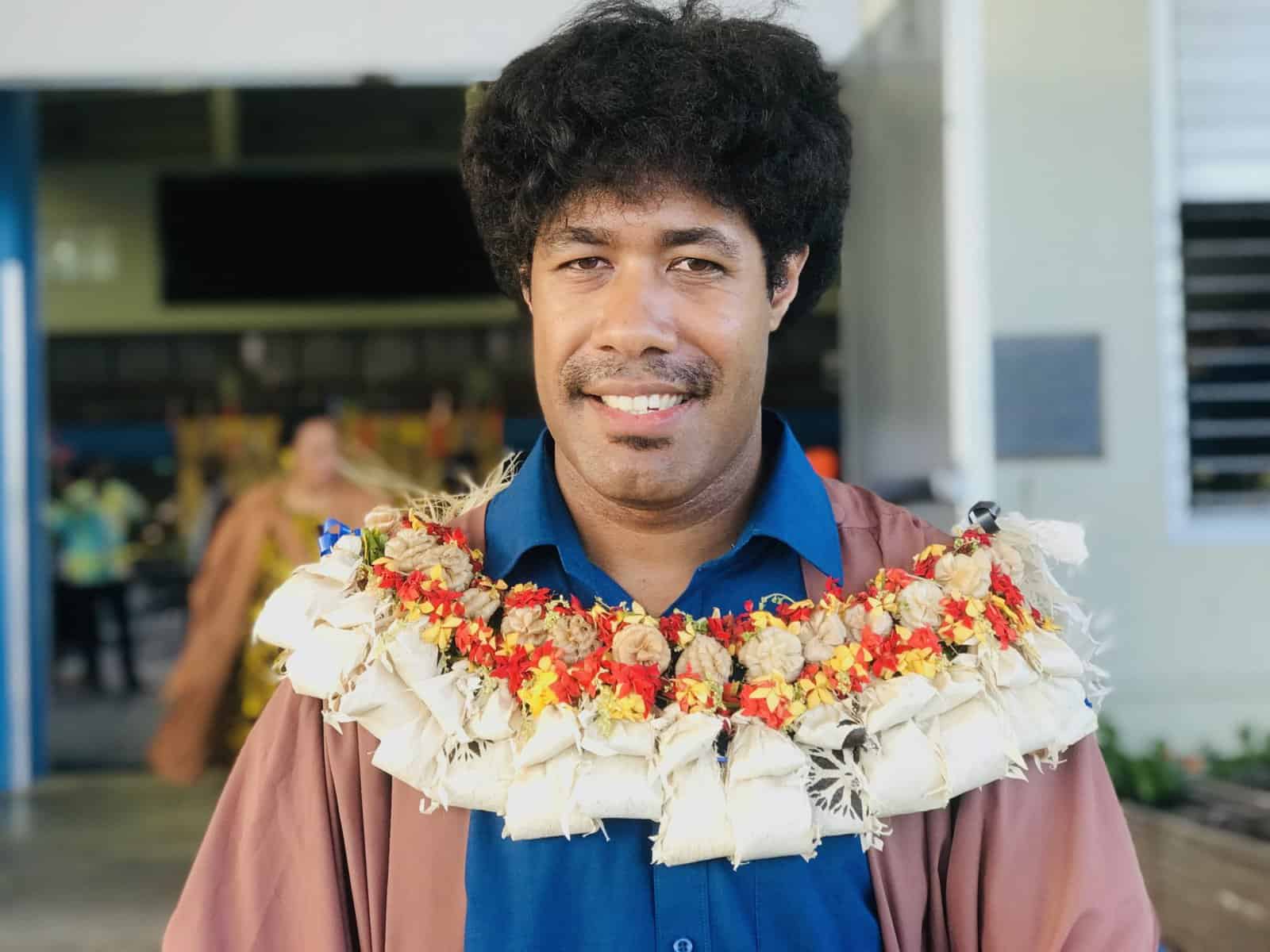
Meanwhile, Fiji-born Mesake Koroimaravu made history at this year’s graduation as part of the first cohort to receive a Postgraduate Diploma in Islands and Ocean Stewardship.
The Kadavu graduate commends the USP Pacific Center for Environmental Sustainability for offering the new postgraduate course.
Koroimaravu notes climate-affected communities in Fiji including his village, Narikoso, have been dealing with sea-level rise.
“They have been trying to relocate for quite some time now,” he said of his village. “I believe with the knowledge that I’ve attained, it will help towards the relocation of my village and other affected communities,” he said.
He says environment and social impact assessments are very crucial, not just for major developments, but for relocation purposes as well.
The assessments “will assist communities with consultation. I believe one of the important aspects that I’ve learned is the importance of consultations with the villagers to help them identify their needs, with regards to when and where they wish to establish their new communities and I believe my course has really enlightened me to understand those perspectives,” he said.
Koroimaravu, who plans to do a Master of Climate Change, says it is very important to upskill one’s self and gain more knowledge. “There’s no shame or hurt in trying to pursue further studies. Have confidence in yourself and firmly believe in what you aspire to be and you will reach it,” he said.
